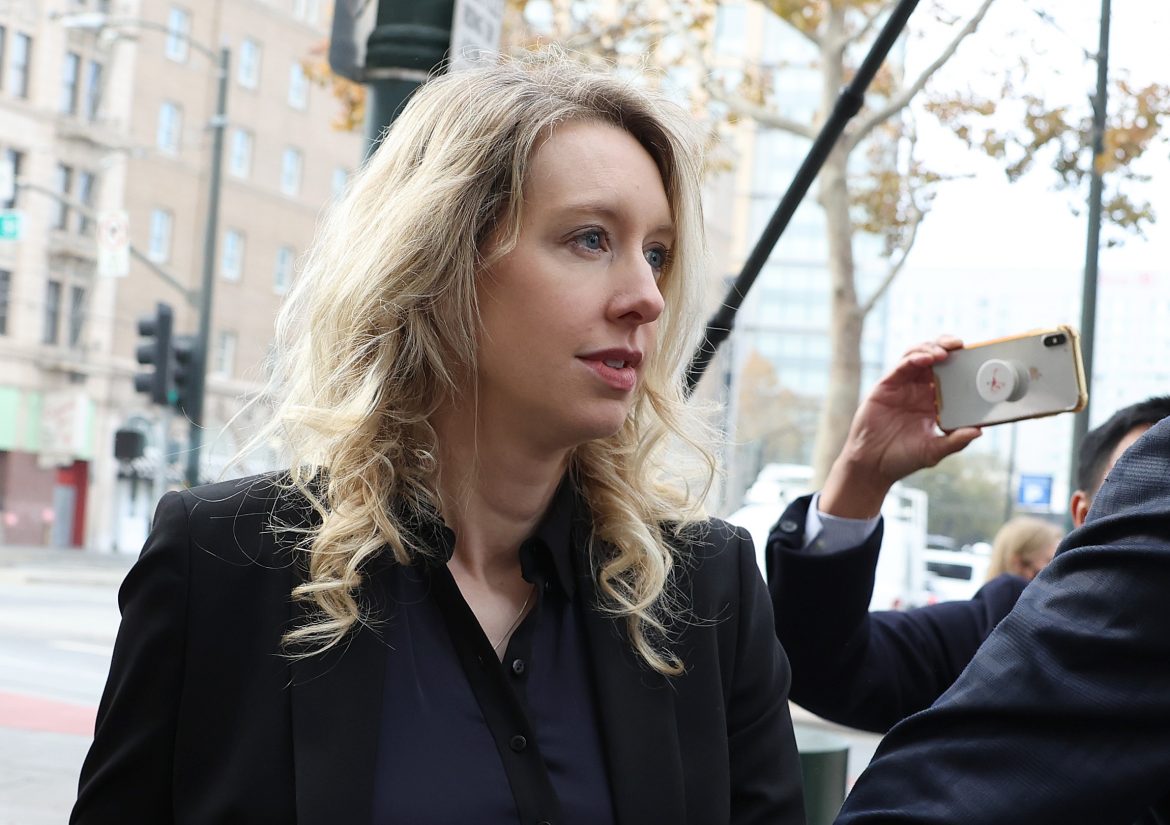Swopping the title of billion-dollar startup founder for ‘jail bird’ likely wasn’t in Elizabeth Holmes’ business proposal. However, the faux star of Silicon Valley is making other fraudsters like Anna Sorokin look like amateurs.
Wait, who is Elizabeth Holmes?
Let’s start at the beginning, for those who haven’t watched The Dropout.
Holmes was an icon to young women everywhere. Something of a comeback kid, Holmes was a college dropout who went on to found (the now-infamous) Theranos before she was 20-years-old.
It was seen as a revolutionary company before its methods were deemed a dud, and was even valued at $9 billion. Holmes was also named Forbes’ youngest “self-made female billionaire,” a tag that wouldn’t age well.
Things started to get publicly sticky by 2015. Theranos’s ‘business practices’ had come under fire and Holmes’ net worth dropped significantly. The business idea that saw quick detections and diagnostics for diseases and cancers seemed too good to be true, and by 2016 this turned out to be the case.
According to the US Attorney’s Office, “Holmes knew the analyzer was not producing accurate and reliable results. Holmes understood that at best it could only perform a few basic tests and was slower than existing devices. She knew that it could not successfully compete with the established conventional machines.”
2018 saw Holmes and her former partner indicted, but that’s not where her story ends.
Holmes, defrauding and the case of many questions
Fast forward to 2022 and Holmes was back on everyone’s radars. She’s been convicted of conspiring to commit fraud on investors and three counts of actually doing it. The fallen Silicon superstar was sentenced to 11 years and 3 months in prison, accused of being “‘blinded by ambition’.”
Not unlike Ms Sorokin, Holmes has been accused of taking on victimhood. Holmes shared that she is “devastated by her failings,” which many have pointed out is not exactly what the case was about.
Still, many questions have plagued Holmes’ case and sexism has been thrown into the debate. Why was she the centrepiece of a case like this when numerous other male tech ‘innovators’ who misled consumers seem to have gotten off with a slap on the wrist or less than that?
A New York Times opinion piece shared that Holmes’ case is a striking example of sexism in the rich players club — a club where, as Ellen Pao points out, a vaping company like Juul can get off with settlements for marketing its products as safe for underage teens and its CEO Kevin Burns can simply step down.
But, as Sarah Green Carmichael contested for Bloomberg, “its true…that Silicon Valley has a well-established fake-it-till-you-make-it culture. Some male entrepreneurs do engage in puffery to attract investments for their startups. But that doesn’t make Holmes’s conviction for fraud evidence of a gender-based double standard. If anything, it’s a reminder that there are justifiable limits to what executives can say — especially in industries such as health care.”
So was Holmes unfairly scrutinised based on her gender? The jury is still divided. Still, if you ever needed a reminder that faking it till you make isn’t always the way to go, Holmes will forever serve as a painstaking reminder.
ALSO SEE:
Wimbledon takes women into account by relaxing all-white apparel rule
Feature Image: Justin Sullivan/Getty Images

